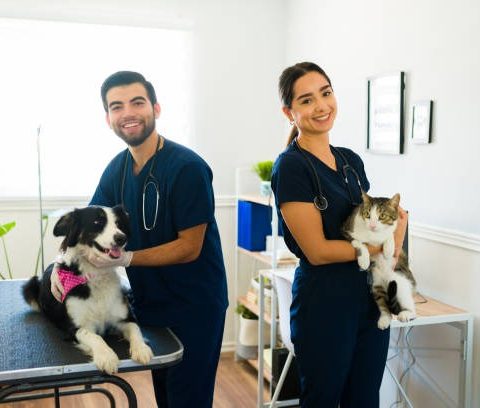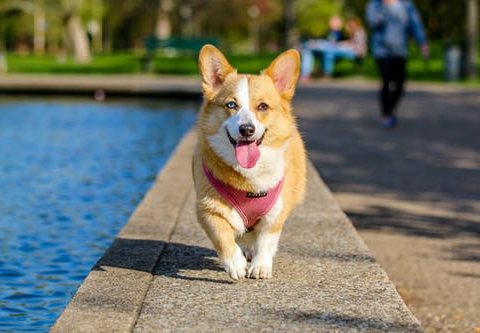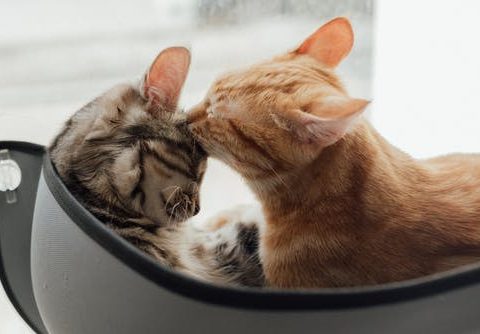Many pet owners believe they don’t need to see a vet if their pet is not sick. If you wish to live a long, healthy life with your animal companion, you must regularly take them to the veterinarian. This is especially true for all exotic animal species.
Why Annual Physical Exams Are Crucial
Even if your pet is in excellent health, the annual wellness examination should be performed once or twice a year. It seeks to detect and prevent disease early so your pet can enjoy optimal health.
Regular visits to the veterinarian for a healthy pet permit the veterinarian to monitor its general health and search for diseases that can be difficult to detect in their earliest stages (such as cancers and parasites). Like any other pet, exotic animals, such as birds and other animals, must undergo annual examinations. Note that exotic pets frequently necessitate specialized care and, in some cases, a stricter diet.
Nutrition
Birds and other exotic pets have specific dietary requirements, so providing them with the proper food to maintain their health is essential. Feeding an exotic pet takes more than opening a can of food or a bag of kibble. An experienced exotic animal veterinarian can inform you of the precise diet requirements for your pet’s health.
Environment
Numerous exotic animals have specific heat, light, temperature, and cage bedding requirements. It takes time to determine which products are best for exotic pets. A veterinarian specializing in exotic pets will examine your pet’s cage to ensure you have created an environment suitable for their species.
These include the correct size of the enclosure, the proper temperature and humidity levels, and adequate air circulation. You can click here for more information about the avian and exotic pets.
Behavior
Many birds and exotic pets can alter their behavior in response to changes in the length of the day and the temperature, as opposed to cats and dogs, whose behavior does not typically alter throughout the year. Your veterinarian, who specializes in caring for birds and other exotic animals, can help you distinguish between normal and abnormal behavior, allowing you to determine when to be concerned.
Immunizations
In many states where it is legal to keep them as pets, ferrets, potbellied or minipigs, kinkajous, and fennec foxes must receive annual vaccinations to remain healthy. By bringing one of these animals in for a yearly exam, you can ensure its vaccinations against dangerous diseases are current.
Preventive Care
Prevention is always preferable to treatment for your pet because it is more cost-effective. A veterinarian with experience caring for birds and exotic pets can provide you with information about the illnesses typical of your pet’s species. For instance, they can teach you what symptoms to look for before the deterioration of these conditions.
You should look for “pet wellness plans near me” to locate the nearest one in your area. Pet wellness plans provide exceptional preventive care for your pet while saving you money.
Parasites
Some birds and exotic animals, like cats and dogs, may harbor intestinal parasites that can be transmitted to humans. However, this can be avoided through parasite prevention. Remember that these parasites steal essential nutrients from your pet’s diet and infect your family, so you must eliminate them if they are present by having a veterinarian examine your pet’s stool sample once a year.
Why Should a Pet See a Specialist in Veterinary Internal Medicine?
Your pet’s body comprises an intricate network of interdependent systems that work together to maintain health. It can be challenging to interpret a problem’s complex symptoms that begin in one part of the body and spread to others. While some conditions can be treated, managing chronic illnesses for the rest of a pet’s life is frequently necessary to ensure a high standard of living. Here, internal medicine can be of assistance.
- A veterinary internist can help determine the cause of a disease when:
- Standard diagnostic procedures cannot accurately identify a sick animal.
- Conventional treatments are ineffective for disease control.
- A condition does not respond to treatment.
Veterinarian internists at Pine Grove Animal Clinic are trained to evaluate a pet’s medical history and clinical findings to select the most appropriate diagnostic procedures and treatments. With your pet’s primary care veterinarian, the internal medicine team will accurately diagnose and treat your pet’s complex medical conditions, allowing them to live their best lives.
Conclusion
Regular wellness exams are essential for maintaining your pet’s overall health and detecting potential health problems in their earliest stages. This is particularly crucial for exotic pets, which require specialized care and attention from a veterinarian who has previously treated them.
Additionally, it is advantageous to consult with a veterinary internal medicine specialist when standard diagnostic tests and treatments fail to control the disease. This way, you can help your pet live a long, happy, and healthy life by attending to their wellness needs. Remember that “prevention is always preferable to treatment.”








